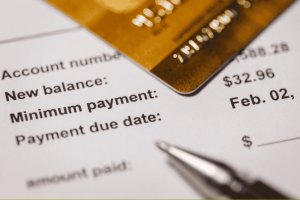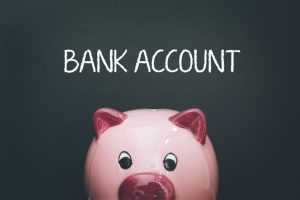Using a credit card responsibly can be a great tool for financial health. However, misusing it can lead to serious problems. Understanding the basics and staying alert to common mistakes is key to avoiding headaches.
To use your credit card correctly, monitor your spending and pay your bills on time. This way, you’ll maintain a healthy credit score and avoid extra fees. In this article, we’ll discuss common credit card mistakes and provide tips to help you avoid them.
Key Takeaways
- Understand the basics of credit cards to use them responsibly.
- Be aware of potential pitfalls and common credit card mistakes.
- Make timely payments to maintain a healthy credit score.
- Monitor your spending habits to avoid overspending.
- Take advantage of credit card benefits and rewards.
Understanding Credit Card Basics
Credit cards are widely accepted and can be a powerful tool. Understanding how they work is essential. When used wisely, they can help boost your credit score. However, making mistakes can hurt it.
How Credit Cards Work
When you use a credit card, you’re borrowing money. You must pay it back, often with interest if not paid by the due date. Credit card issuers provide detailed statements and online tools to help you track your spending and payments.
Different Types of Credit Cards Available to Finnish Consumers
There are several types of credit cards available. Rewards cards offer cashback or points on purchases. Travel cards provide benefits like airport lounge access or travel insurance. Understanding these options helps you choose the right card for your needs.
Some cards offer 0% interest for a promotional period. This can be advantageous for large purchases or balance transfers.
The True Cost of Credit Card Debt
Credit card debt isn’t just about how much you borrow. If you don’t pay off your balance each month, you’ll pay interest too. This means you’re paying more than what you originally spent.
Carrying a balance can hurt your credit score and cost you money. Understanding interest rates is essential.
Explaining Interest Rates
Credit card interest rates show how much extra you’ll pay. These rates can vary between different issuers.
The average APR (Annual Percentage Rate) ranges from 15% to 25%.
Some cards offer 0% introductory APR.
Penalty APRs can be much higher.
How Compound Interest Affects Your Debt
Compound interest adds interest to both the principal amount and any interest already accumulated. This can cause your debt to grow quickly if not managed properly.
Missing Payment Deadlines: A Critical Mistake
Missing a payment deadline isn’t just being late—it can seriously harm your credit score. If you’re more than 30 days late, it could result in higher interest rates and make it harder to get credit in the future.
Impact on Your Credit Score
Your payment history is one of the biggest factors affecting your credit score. Missing a payment can significantly lower your score, making it harder to secure credit at good rates. Remember, one missed payment can impact you for a long time.
Setting Up Automatic Payments
Setting up automatic payments is a smart way to avoid missing payments. This ensures your bills are paid on time, every time. Most banks and credit card companies offer this service, allowing you to choose the amount and date for automatic deductions.
Only Making Minimum Payments

If you only make the minimum payment on your credit card, you’ll pay much more in the long run. This can extend how long it takes to pay off your debt and result in higher interest payments.
Long-Term Financial Impact
Paying only the minimum means your debt can take years to pay off. For example, a €1,000 balance with 20% interest can cost you more than the original amount due to all the interest you’ll pay over time.
Strategies to Pay More Than the Minimum
To avoid the trap of minimum payments, try to pay more. Look at your budget and see where you can cut costs. Use that money to pay down your credit card debt. You can also set up automatic payments that are slightly higher than the minimum.
Creating a Realistic Payment Plan
Start by understanding your finances. Determine how much you owe, and then decide how much you can pay each month. You may use the snowball or avalanche method to tackle your debts more effectively.
Maxing Out Your Credit Limit
High credit utilization can hurt your credit score and lead to higher interest rates. When you use up all your credit, you’re not just building debt; you’re also risking your credit score.
How High Utilization Affects Your Credit Score
Using a large portion of your credit can lower your credit score. A high credit utilization ratio can make it harder to get credit in the future.
Ideal Credit Utilization Ratios
It’s a good rule to keep your credit utilization below 30%. Try to use less than 10% of your available credit. This shows lenders you can manage your credit responsibly.
Applying for Too Many Cards at Once

Applying for multiple credit cards at once can hurt your credit score. Each application results in a hard inquiry on your credit report. This can lower your score.
How Multiple Applications Affect Your Credit
Multiple credit card applications may make lenders view you as a risk. This can lower your credit score and make it harder to get credit in the future. Credit scoring models view many inquiries in a short period as risky.
Spacing Out Your Credit Applications
To protect your score, space out your credit card applications. Avoid applying for several cards at once. Wait a few months between each application. This reduces hard inquiries on your report.
Ignoring the Fine Print
The fine print in your credit card agreement may seem like tedious legal language, but it’s crucial to understand what’s hidden inside. When you apply and are approved for a credit card, you’ll receive a lengthy cardholder agreement outlining the terms of your credit.
Hidden Fees to Watch For
Many credit card issuers include various fees, which can add up quickly if you’re not aware of them. Some common hidden fees include:
- Annual fees
- Late payment fees
- Foreign transaction fees
- Balance transfer fees
Being aware of these fees helps you avoid unnecessary charges.
Using Credit Cards for Cash Advances
Using your credit card for a cash advance is an expensive choice. It may seem like a quick fix, but the long-term costs are high.
The High Cost of Cash Advances
Cash advances come with high fees and interest rates. These costs can pile up quickly. Unlike regular purchases, cash advances start accruing interest immediately, with no grace period.
Better Alternatives for Quick Cash
Before choosing a cash advance, consider other options. Personal loans from banks or credit unions may offer lower interest rates and better terms.
How to Avoid Credit Mistakes When Traveling

Before you go on your trip, it’s important to know how to avoid common credit card mistakes. These mistakes can add up quickly. Being aware of what to watch out for can make your trip less stressful.
Foreign Transaction Fees
One major mistake is being hit with foreign transaction fees. These fees, usually around 3% per transaction, occur when you buy items outside your country. To avoid these fees, use a credit card that doesn’t charge them. Travel credit cards often have no foreign transaction fees, making them a great choice for overseas trips.
Currency Conversion Issues
Another issue is currency conversion. Some places might convert your money to your home currency at unfavorable rates, making things more expensive than they should be. Always choose to be charged in the local currency to avoid this.
Conclusion
Being cautious with your credit card usage can help you maintain financial health. Taking extra steps this year can save you money and improve your credit score. It can also help you earn rewards.
Understanding the basics of credit cards is key to avoiding mistakes. Knowing the real cost of credit card debt and making smart choices about how much you use your card is important. By following the tips in this article, you can use your credit cards wisely and reach your financial goals.
To keep your finances in good shape, continue using your credit card responsibly. Pay your bills on time, use your credit wisely, and avoid extra fees. Doing this will help you enjoy the benefits of using credit cards without running into problems.









